Roy
Clark

-
Inducted2009
-
Born
April 15, 1933
-
Died
November 15, 2018
-
Birthplace
Meherrin, Virginia
A truly versatile entertainer, Roy Clark delighted crowds from small-town venues to Las Vegas showrooms with his singing, showmanship, instrumental prowess, and comedy. As co-host of the long-running television series Hee Haw, guest host for The Tonight Show, and one of the first country artists to tour the Soviet Union, he symbolized country music at home and abroad. For more than fifty years, he pursued a middle-of-the-road musical approach, offering audiences an accessible country sound applied to country songs, pop standards, bluegrass tunes, movie themes, gospel favorites, and jazz numbers.
A Budding Professional
Roy Linwood Clark was born into a musical family on April 15, 1933, in Meherrin, Virginia. Like his father, Hester Linwood Clark, he learned guitar, fiddle, and banjo, and the two often performed together while Roy was a teenager.
By age twenty, Clark was a budding professional, having played clubs, toured with Grandpa Jones, performed on a Washington, D.C., TV station, and worked briefly on a show led by Hank Williams. Soon Clark was appearing on broadcaster Connie B. Gay’s local Town and Country Time radio and TV broadcasts, as well as at concerts Gay promoted. In the late 1950s, network TV appearances on Arthur Godfrey’s Talent Scouts and a show fronted by George Hamilton IV widened Clark’s reputation.
Clark joined Wanda Jackson’s band in 1960 and led the group, recorded with Jackson, and opened her show at the Golden Nugget Hotel in Las Vegas. As his career progressed, Clark made many more appearances in the “big rooms” of Las Vegas, Reno, Lake Tahoe, and Atlantic City. Meanwhile, Jackson’s former manager, Jim Halsey, lined up spots for Clark on The Tonight Show, which he also guest-hosted several times, and on TV programs including The Beverly Hillbillies, on which he played two recurring characters, Cousin Roy and Roy’s mother, Myrtle.
Songs
00:00 / 00:00
00:00 / 00:00
00:00 / 00:00
Hee Haw Host
In 1969, when CBS-TV launched Hee Haw, a country-themed sketch comedy program modeled on the hit series Laugh-In, executives chose Clark and Buck Owens as co-hosts. Even though the network canceled the show after two seasons in a purge of rural-leaning programs, Hee Haw went into syndication and grew more popular than ever. Clark was a mainstay through the series’ twenty-five-year run, not only hosting and performing but also singing with Owens, Grandpa Jones, and Kenny Price in the Hee Haw Gospel Quartet and joining guitarist Chet Atkins, pianist Floyd Cramer, mandolin player Jethro Burns, saxophonist Boots Randolph, fiddler Johnny Gimble, harmonica player Charlie McCoy, and trumpet player Danny Davis in the show’s Million Dollar Band.
On Hee Haw, Clark also enjoyed doing comedy, especially the cornfield bits he did with Junior Samples, who repeatedly stumbled over “big” words. “They’d count it down and we’d do it,” Clark recalled, “he’d blow it, and it was hilarious.”
Videos
“Pickin’ and Grinnin’” sketch
Hee Haw, 1969
“Thank God and Greyhound”
Hee Haw, 1970
In 1969, when CBS-TV launched Hee Haw, a country-themed sketch comedy program modeled on the hit series Laugh-In, executives chose Clark and Buck Owens as co-hosts.
Photos
-
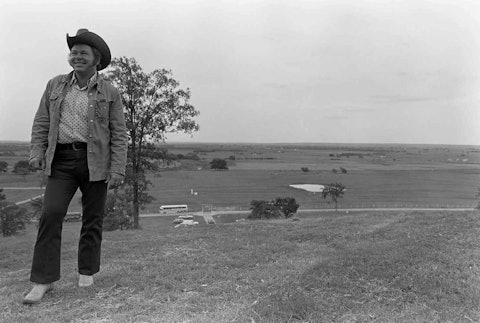
Roy Clark in Tulsa, Oklahoma, 1975. Photo by Raeanne Rubenstein.
-
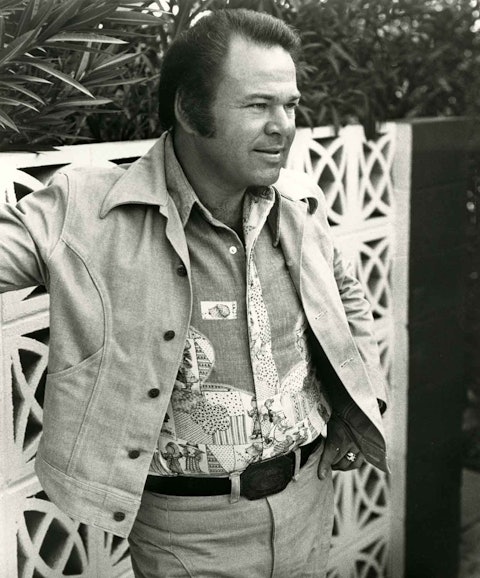
Roy Clark publicity photo, 1976.
-
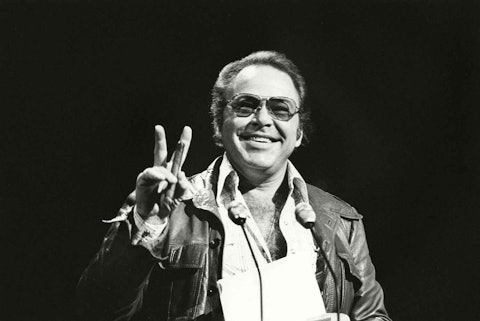
Roy Clark at the Country Music Association Awards, 1978.
-
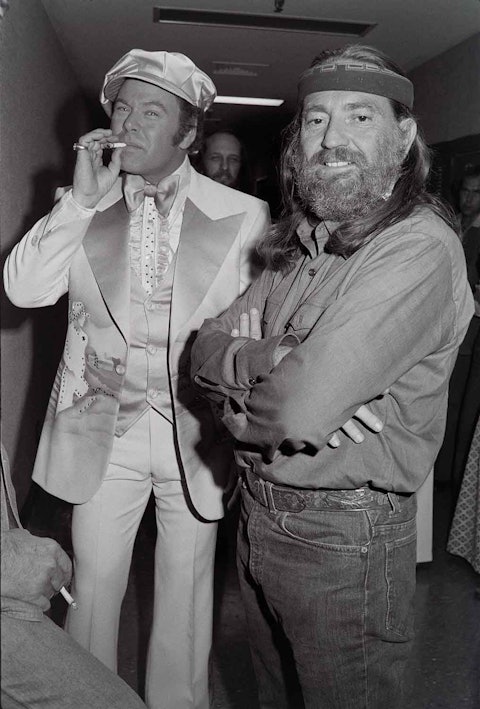
Roy Clark and Willie Nelson backstage at the Country Music Association Awards, 1976. Photo by Raeanne Rubenstein.
-
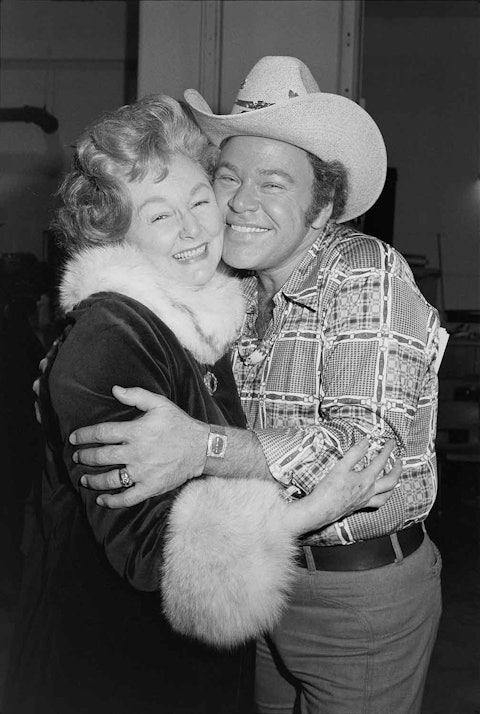
Roy Clark and actor Dorothy Ritter, widow of country singer and actor Tex Ritter, at the Country Music Association Awards, 1975. Photo by Raeanne Rubenstein.
-
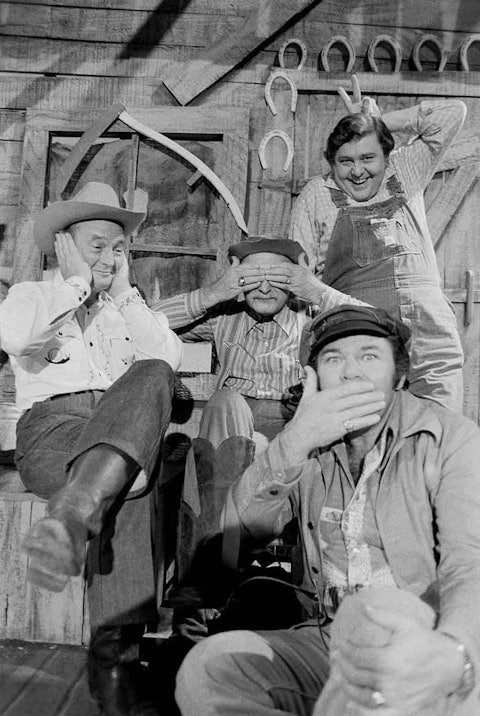
Clockwise from left: John Henry Faulk, Grandpa Jones, Kenny Price, and Roy Clark on the set of Hee Haw, 1975. Photo by Raeanne Rubenstein.
-
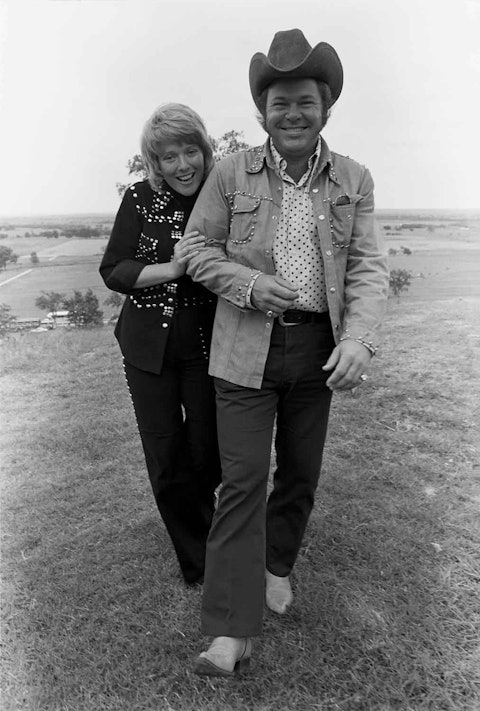
Roy Clark and country and pop singer Diana Trask in Tulsa, Oklahoma, 1975. Photo by Raeanne Rubenstein.
-
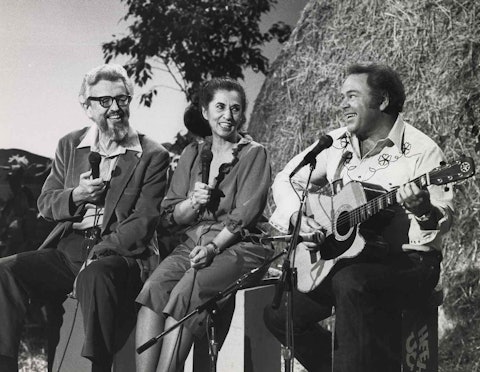
Roy Clark with Boudleaux and Felice Bryant on the set of Hee Haw, 1970s.
-
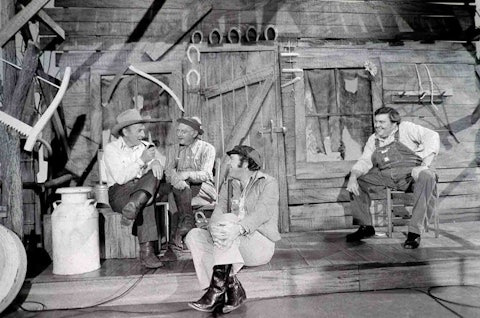
From left: John Henry Faulk, Grandpa Jones, Roy Clark, and Kenny Price on the set of Hee Haw, 1976. Photo by Raeanne Rubenstein.
A Multi-Faceted Career
As a recording artist, Clark’s break came in 1960, when he signed with Capitol Records. The Lightning Fingers of Roy Clark—his first Capitol album, released in 1962—reflected his sure handling of the guitar. Clark’s first charting release was a moving interpretation of the Bill Anderson song “The Tips of My Fingers,” which became a #10 country hit while also rising to #45 on Billboard’s pop chart. Clark’s subsequent Capitol singles did not repeat this success, but the label gave him the freedom to record a wide array of albums featuring his vocal, guitar, and banjo skills.
After moving to Dot Records, Clark bounced back with 1969’s “Yesterday, When I Was Young,” a #9 country hit that crossed over to #19 on the pop chart. Subsequent Top Ten country hits included 1970’s “I Never Picked Cotton” and “Thank God and Greyhound,” “The Lawrence Welk-Hee Haw Counter-Revolution Polka” (1972), the 1973 #1 record “Come Live with Me,” “Somewhere Between Love and Tomorrow” (1973), 1974’s “Honeymoon Feelin’,” and “If I Had to Do It All Over Again” (1976). Clark charted through the 1980s on ABC/Dot, ABC, MCA, and other imprints, and various labels released his live and studio albums into the twenty-first century.
From the 1970s forward, Clark made TV commercials and guested on numerous television programs. In 1976 he became one of the first American artists to perform in the Soviet Union, and he continued playing to packed houses worldwide. Often, he worked concerts and recorded with musicians from other genres, including the Boston Pops Orchestra and jazz guitarist Joe Pass. Clark opened the Roy Clark Celebrity Theater in Branson, Missouri, in 1983, heralding the city’s emergence as a tourist destination.
Clark joined the Grand Ole Opry in 1987. Throughout his career, Clark’s peers honored him with seven Country Music Association Awards: the coveted Entertainer of the Year Award in 1973, Comedian of the Year in 1970, Instrumental Group of the Year (with banjoist Buck Trent) in 1975 and 1976, and Instrumentalist of the Year in 1977, 1978, and 1980. His rendition of “Alabama Jubilee” earned him a Grammy for Best Country Instrumental Performance in 1983.
Clark died in 2018, at the age of eighty-five, due to complications from pneumonia.
—Todd Everett
Adapted from the Country Music Hall of Fame® and Museum’s Encyclopedia of Country Music, published by Oxford University Press



